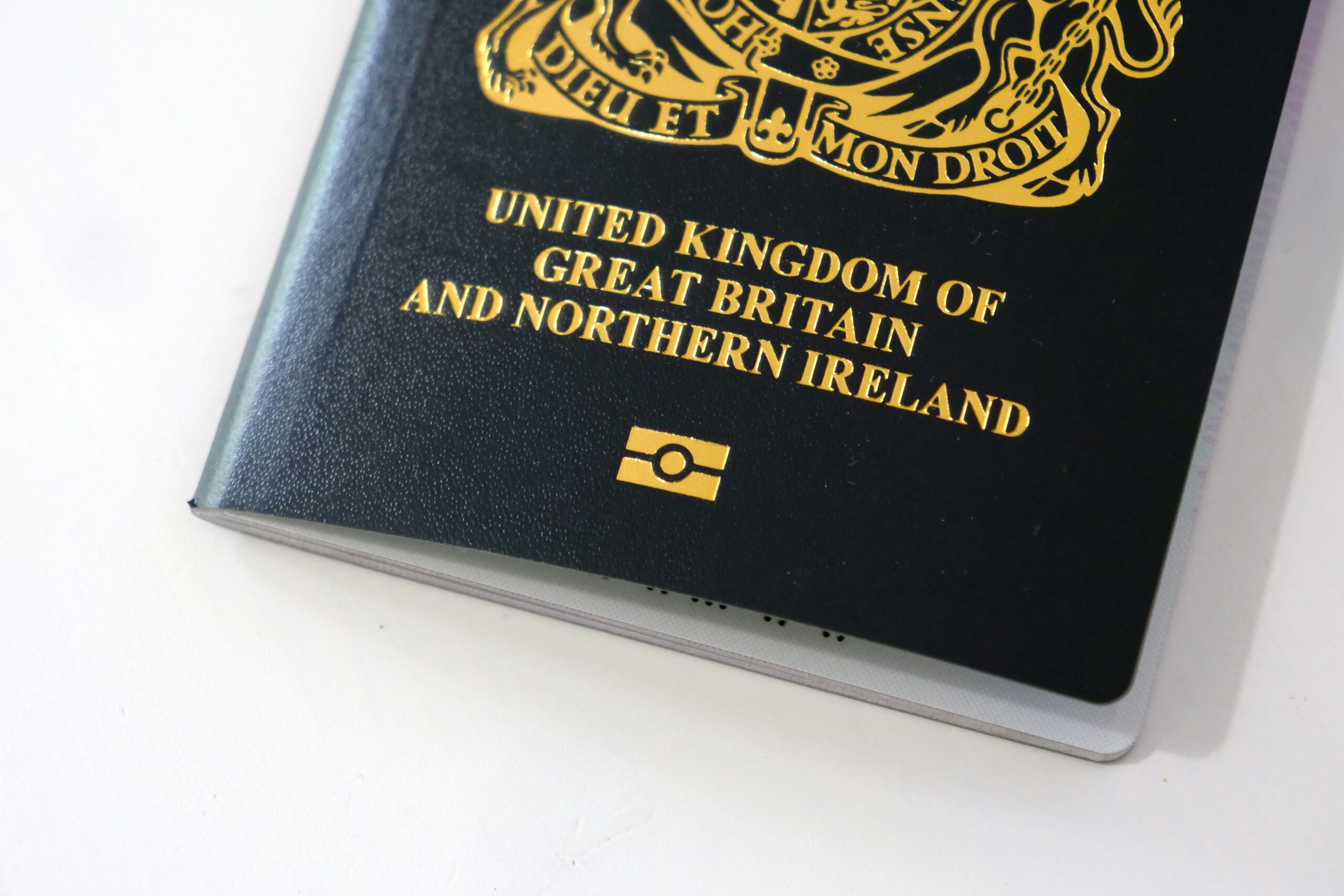VISA UPDATES FOR EUROPEAN COUNTRIES FOR TRAVELERS AND INTERNATIONAL STUDENTS
Reading Duration: 20 min.
The landscape for travelers and international students venturing into Europe has shifted significantly with the visa updates in 2024. With new visa regulations, biometric data systems, and heightened financial requirements across various countries, adapting to these changes is crucial for a smooth experience. Whether you’re a student eager to start your education abroad, or a traveler excited to explore new destinations, understanding the updated visa requirements will help you navigate these shifts with confidence.
European countries are introducing streamlined processes for both travelers and students to ensure more efficient border controls while enhancing security. For instance, the European Union is rolling out the Entry/Exit System (EES) in several member countries, a game-changer that will require non-EU travelers to submit biometric data like fingerprints and facial recognition upon entry. This system is designed to improve border management but may cause delays for those unaware or unprepared for its implementation.
On the academic side, many countries have adjusted their visa policies to accommodate the growing number of international students while balancing economic and infrastructure demands. Countries like Germany, Denmark, and Ireland are expanding post-graduation work opportunities, giving students more time to secure employment after finishing their studies. However, there are also tighter financial requirements and restrictions in some countries like Belgium and Denmark, which may impact how students plan their budgets and post-study life.
This article will guide you through the latest visa updates in Europe, focusing on how these changes affect both travelers and international students. By staying informed and prepared, you can ensure a smoother, more enjoyable journey in 2024, no matter where your travels or studies take you.
VISA UPDATES FOR EUROPEAN COUNTRIES FOR TRAVELERS AND INTERNATIONAL STUDENTS
Austria: The Land of Music and Smooth Border Controls
Belgium: Chocolate, Waffles, and Higher Financial Requirements
Denmark: The Happiest Country Extends Work Opportunities
Finland: The Land of a Thousand Lakes and Fast-Tracked Visas
France: The City of Light and Simplified Visa Processes
Germany: Beer, Bratwurst, and Easier Residency for Students
Greece: Sun, Sea, and Visa-Free Travel Perks
Ireland: Land of Scholars and Open Doors for Students
Italy: Pasta, Fashion, and Flexible Work Visas
Luxembourg: Banking, Castles, and Student Work Flexibility
Netherlands: Canals, Tulips, and Caps on Student Visas
Portugal: Wine, Beaches, and a Surge in Student Numbers
Spain: Flamenco, Siestas, and a Booming Student Population
Sweden: The Land of Innovation and Permit Delays for Graduates
Stay Ahead of Europe’s Visa Changes in 2024
Austria: The Land of Music and Smooth Border Controls
Austria, renowned for its rich cultural history and stunning landscapes, is now making headlines for its updated visa and border control processes. In 2024, Austria is introducing the Entry/Exit System (EES), which is designed to enhance security for non-EU travelers by digitizing border controls. This system requires biometric data such as fingerprints and facial recognition to be collected at entry points. For frequent travelers from visa-exempt countries like the United States and Canada, this new process may add some steps to their journey, but it promises to streamline future border crossings.
For students, Austria remains one of the most affordable and accessible study destinations in Europe, with tuition fees that are significantly lower than other Western European countries. Public universities, for instance, charge international students between €1,500 and €3,000 annually, which is a major draw for foreign students. Austria’s Republic of Austria Scholarship provides additional financial support, covering accommodation, health insurance, and a monthly stipend for eligible students. Despite these benefits, it’s important to note that Austria enforces strict health insurance requirements for all students. Without proper health coverage, students will not be able to complete their visa applications, so careful preparation is essential.
Moreover, Austria offers flexible work opportunities for international students, allowing them to work part-time during their studies. These opportunities, combined with the updated visa processes, make Austria a desirable destination for both travelers and students looking to immerse themselves in a vibrant cultural experience. Whether you’re coming for the stunning music festivals or pursuing higher education, staying informed about Austria’s new visa rules will ensure a smoother journey.

Schönbrunn Palace (Austria)
Belgium: Chocolate, Waffles, and Higher Financial Requirements
Belgium is world-famous for its chocolate, waffles, and picturesque cities like Brussels and Bruges. But for international students looking to study here in 2024, there are important visa updates to be aware of—especially regarding financial requirements. As part of an effort to more accurately reflect the real costs of living, Belgium has increased the financial proof needed for student visa applications. International students are now required to show that they have €666 per month for living expenses, which is a significant increase from previous years. This adjustment reflects the growing cost of accommodation, food, and transportation, particularly in urban areas like Brussels and Antwerp.
These higher financial requirements mean that potential students will need to budget more carefully before applying for their study visa. For those looking to work while studying, Belgium offers flexible part-time work opportunities, allowing students to work up to 20 hours per week during the academic year and full-time during holidays. This can help offset some of the increased living costs, but planning is essential to avoid financial stress.
On the positive side, Belgium continues to offer a relatively straightforward path to work visas after graduation. International students are given nine months after completing their studies to search for employment, and during this period, they can transition from a student visa to a work visa. This makes Belgium an attractive option for those looking to build a career in Europe post-graduation.
For students and travelers alike, staying updated on these financial and visa changes is key to ensuring a successful and smooth experience in Belgium. By planning ahead and understanding the requirements, international students can still enjoy all that this beautiful country has to offer—from its rich culture to its vibrant educational scene.

Grand Place (Belgium)
Denmark: The Happiest Country Extends Work Opportunities
Denmark, consistently ranked as one of the happiest countries in the world, has become an even more attractive destination for international students in 2024, thanks to new visa and work policies that expand post-graduation opportunities. For students pursuing higher education in Denmark, one of the most significant updates is the new rule allowing international students to work up to 90 hours per month during their studies. This is an increase from previous restrictions and offers more flexibility for students to balance their academics with part-time employment. During the summer months (June, July, and August), students are permitted to work full-time, giving them an opportunity to earn extra income and gain valuable work experience.
In addition to this, Denmark now provides a three-year job search visa for international graduates, giving them ample time to transition from student life to professional careers. This extended period allows graduates to explore job opportunities in Denmark’s thriving industries such as technology, engineering, and sustainability—fields where Denmark is a global leader.
However, while these work opportunities are appealing, it’s essential to remember that Denmark is also known for its high cost of living, particularly in cities like Copenhagen. Students should carefully budget and ensure that they meet the financial requirements for their visa application. Denmark requires proof of sufficient funds to cover living expenses, which is a critical step in the visa process.
For those who can navigate the financial demands, Denmark offers not only a world-class education but also the chance to build a career in one of Europe’s most innovative and forward-thinking countries. With its welcoming atmosphere, work opportunities, and extended post-graduation visas, Denmark is a fantastic option for students aiming to study and work abroad.

Nyhavn (Denmark)
Finland: The Land of a Thousand Lakes and Fast-Tracked Visas
Known for its pristine nature and innovative education system, Finland is stepping up its game in 2024 with fast-tracked visa options for international students and researchers. The most notable update is the introduction of the D visa, which allows students, researchers, and employees to enter Finland faster once their residence permits have been approved. This new visa significantly reduces waiting times, making it easier for international students to start their studies or research projects without lengthy delays.
Finland is becoming an increasingly popular destination for students from outside the EU, particularly due to its world-class education system and focus on innovation. In 2024, over 61,800 international students applied for higher education in Finland, reflecting the country’s growing appeal. Finnish universities offer a broad range of programs, many of which are taught in English, making the country accessible to students from all over the world. Fields like technology, environmental science, and design are particularly strong, aligning with Finland’s reputation for sustainability and cutting-edge innovation.
However, it’s important for students to note that while the D visa speeds up entry, Finland has strict financial requirements for international students. Applicants must prove they have sufficient funds to support themselves during their studies, currently set at €7,000 per year. Proper financial planning is essential to ensure that visa applications are successful.
Finland also provides a two-year post-graduation visa, allowing students ample time to look for employment after completing their studies. This makes Finland an attractive destination for those looking to combine education with long-term career opportunities in Europe’s tech and innovation sectors. With fast-tracked visas, strong academic programs, and a welcoming environment for international students, Finland continues to be a top choice for those seeking to study and build a career abroad.

Helsinki Central Station (Finland)
France: The City of Light and Simplified Visa Processes
France, long known for its cultural allure and prestigious educational institutions, has made significant strides in simplifying its visa processes in 2024. These changes are part of a broader effort to attract even more international students to its universities and research centers. One of the standout updates is the streamlined digital visa submission process, which allows international students and researchers to submit their visa applications online. This move is intended to reduce processing times, eliminate paperwork, and offer a smoother overall experience.
France is already home to over 412,000 international students as of 2023, a number that continues to grow each year, particularly from regions like Sub-Saharan Africa and North Africa. With its world-class education system, affordable tuition rates (around €2,770 per year for non-EU students), and global reputation, France remains one of the top destinations for students looking to study abroad. Universities like the Sorbonne and Sciences Po are renowned for their academic excellence, offering diverse programs in fields ranging from business and economics to arts and humanities.
For international students, France has also implemented measures that prioritize employability. The country’s emphasis on internships, apprenticeships, and post-graduate work opportunities makes it easier for students to gain practical experience during their studies. After graduation, students can apply for a temporary residence permit to search for employment or start a business, further enhancing their post-graduation career prospects.
France’s combination of academic excellence, affordability, and streamlined visa processes makes it a prime destination for students looking to immerse themselves in European culture while advancing their education. Whether it’s the bustling streets of Paris or the serene campuses in the south of France, students can expect an enriching experience backed by strong support for international mobility.

Eiffel Tower (France)
Germany: Beer, Bratwurst, and Easier Residency for Students
Germany, famous for its rich history, diverse culture, and, of course, its beer and bratwurst, remains a top destination for international students in 2024. As one of Europe’s leading hubs for higher education, Germany has implemented several changes to its visa policies that make it easier for international students to study, work, and eventually live in the country.
One of the most significant updates for non-EU travelers and students is the implementation of the Entry/Exit System (EES) in November 2024. This system requires all non-EU travelers, including international students, to provide biometric data such as fingerprints and facial recognition upon entry and exit. While this may lead to delays during peak travel periods, it is designed to improve border security and streamline the immigration process over time.
For students, Germany’s Skilled Worker Immigration Law now offers even greater flexibility. International students can work up to 20 hours per week during their studies, giving them the opportunity to support themselves financially while gaining practical experience in their field. After graduation, students have a two-year post-graduation visa to search for jobs in Germany, making the transition from student life to professional employment much smoother.
Germany is also renowned for its tuition-free public universities, which makes it an affordable option for international students. In addition to the free tuition, Germany’s strong economy and focus on innovation in sectors such as engineering, technology, and healthcare provide students with ample career opportunities after graduation.
For those looking to study abroad in a country known for its academic excellence and economic strength, Germany’s updated visa policies make it even more accessible and appealing in 2024. Staying informed about these changes will help students and travelers alike navigate the process smoothly and take full advantage of the opportunities that Germany has to offer.

Brandenburg Gate (Germany)
Greece: Sun, Sea, and Visa-Free Travel Perks
Known for its stunning islands, rich ancient history, and vibrant culture, Greece is not only a top tourist destination but also an increasingly attractive option for international students. In 2024, Greece has introduced several key updates to its visa policies aimed at boosting both tourism and foreign education enrollment.
One of the most significant changes for travelers is the introduction of visa-free entry for citizens from countries such as the United States and Canada. This policy allows travelers to stay in Greece for up to 90 days without a visa, making it easier for tourists to visit the country and enjoy its incredible sights, from the Acropolis in Athens to the beautiful beaches of Santorini. This change is part of Greece’s effort to attract more international visitors, contributing to the country’s record-breaking tourism numbers in 2024, with a 12.3% rise in air travelers in the first quarter alone.
For international students, Greece is aiming to attract 40,000-50,000 students by promoting English-language programs in fields such as archaeology, history, and Greek culture. The affordability of studying in Greece is also a major draw, with tuition fees in public universities ranging between €300 and €900 per year. Moreover, Greece offers various scholarships to support international students, such as the State Scholarships Foundation (IKY), which provides financial aid to cover tuition and living expenses.
Greece’s welcoming visa policies, combined with its affordability and rich cultural offerings, make it an increasingly attractive destination for students and travelers alike. Whether you’re looking to explore the country’s historical landmarks or pursue an education in one of Europe’s most fascinating cultural centers, staying informed on these visa updates will ensure a seamless and rewarding experience.

Parthenon (Greece)
Ireland: Land of Scholars and Open Doors for Students
Ireland, known for its rich history, stunning landscapes, and world-class education system, continues to be a top destination for international students. In 2024, Ireland is strengthening its commitment to welcoming international talent by updating its visa policies and offering expanded opportunities for students and travelers alike.
Under the Global Citizens 2030 strategy, Ireland aims to increase international student enrollments by 10% by 2030, positioning the country as a global leader in education. Ireland is already home to renowned universities like Trinity College Dublin and University College Dublin, which offer a wide range of programs across disciplines such as business, engineering, and the arts. With affordable tuition rates compared to other English-speaking countries and numerous scholarship options like the Irish Research Council Postgraduate Scholarship, Ireland is an increasingly attractive option for students from around the world.
For international students, one of the most appealing aspects of studying in Ireland is the two-year post-study work visa. This visa allows graduates to stay in the country and search for employment in their field, giving them ample time to transition from academia to the professional world. Ireland’s tech and pharmaceutical industries, in particular, offer excellent career opportunities for graduates looking to stay and work long-term.
In addition to its academic appeal, Ireland has also seen a 20% increase in work permits issued in 2024, particularly to workers from countries like India. This reflects Ireland’s commitment to attracting global talent not only for its educational institutions but also for its growing industries.
Whether you’re drawn by the opportunity to study in world-class institutions or to explore Ireland’s vibrant cities and landscapes, these updated visa policies make Ireland an ideal destination for students and travelers alike. Staying informed about these changes will help ensure a smooth and successful experience.

Cliffs of Moher (Ireland)
Italy: Pasta, Fashion, and Flexible Work Visas
Italy, famous for its rich cultural history, exquisite cuisine, and fashion, is also gaining recognition for its flexible visa policies aimed at attracting both travelers and international students. In 2024, Italy has introduced significant updates to its visa system, making the country even more accessible for short-term visitors and international students alike.
For travelers, Italy has expanded its visa-free entry policy for several countries, including the U.S., Canada, and select others. This allows visitors to stay in Italy for up to 90 days without a visa, making it easier to experience iconic destinations like Rome, Venice, and Florence without the hassle of lengthy visa applications. Italy’s tourism industry is booming, thanks in part to this simplified entry process, drawing millions of visitors to its historic landmarks, world-class museums, and breathtaking coastlines.
On the academic side, Italy continues to be a popular choice for international students, thanks to its renowned universities like the University of Bologna and Sapienza University of Rome. International students benefit from Italy’s D Visa, required for courses lasting longer than 90 days. This visa also comes with flexible work options, allowing students to work up to 20 hours per week while studying. Italy’s post-graduation work visa policies have also been updated, giving international graduates more time to secure employment in the country after completing their studies, particularly in fields like architecture, design, and fashion, where Italy excels globally.
The affordability of education in Italy is another key draw, with tuition fees for non-EU students ranging from €1,000 to €3,000 per year at public universities. This, combined with Italy’s rich cultural experiences and career opportunities, makes it an attractive destination for international students.
Whether you’re looking to immerse yourself in Italian culture or pursue higher education, Italy’s updated visa policies in 2024 make it easier than ever to explore and succeed in this beautiful country.

Colosseum (Italy)
Luxembourg: Banking, Castles, and Student Work Flexibility
Luxembourg, known for its grand castles, robust banking sector, and central location in Europe, may be small, but it packs a punch when it comes to education and visa opportunities for international students. In 2024, Luxembourg remains a top choice for students seeking affordable education and flexible work opportunities, offering updates that cater to both short-term travelers and long-term students.
For students, Luxembourg’s public universities offer incredibly affordable tuition fees, ranging from €200 to €450 per semester, which is a major draw for international students. The University of Luxembourg, the country’s flagship university, offers a wide range of programs, many of which are taught in English, making the country accessible to students from around the world. Scholarships and financial aid opportunities are also available, easing the financial burden on students looking to study in this European hub.
Luxembourg’s visa policies are also favorable for students. International students are required to apply for a Type D visa for long-term stays, and once in the country, they can work up to 15 hours per week. This flexibility allows students to gain work experience and support themselves financially while pursuing their studies. Luxembourg also offers excellent career prospects for graduates, particularly in the finance, technology, and legal sectors, which are thriving in this small but economically powerful country.
For travelers, Luxembourg is part of the Schengen Zone, meaning tourists from many countries can visit for up to 90 days without needing a visa, making it a convenient and accessible destination for short-term stays. However, given Luxembourg’s status as one of Europe’s most expensive cities, careful financial planning is essential for both travelers and students.
Luxembourg’s combination of affordability, work flexibility, and excellent career prospects make it an attractive destination for those seeking quality education and vibrant cultural experiences in the heart of Europe. Whether you’re a student looking to study in a multicultural environment or a traveler exploring its historic sites, Luxembourg’s visa policies in 2024 are designed to offer both accessibility and opportunity.

Vianden Castle (Luxembourg)
Netherlands: Canals, Tulips, and Caps on Student Visas
The Netherlands, famous for its picturesque canals, vibrant tulip fields, and innovative academic institutions, has long been a hotspot for international students. However, in 2024, significant changes are affecting the way the Netherlands manages its international student population, driven by a need to address housing shortages and increasing political pressure. These changes include caps on student visas, particularly for non-EU students applying to popular English-language programs.
For years, the Netherlands has been a prime destination for students pursuing degrees in fields like business, technology, and the sciences, offering high-quality education in English. However, the rising demand for housing has led to severe shortages, particularly in major student cities like Amsterdam, Rotterdam, and Utrecht. This has caused universities and the government to introduce limits on the number of international students, especially in programs that attract high volumes of applicants from outside the EU.
Despite these new restrictions, the Netherlands continues to offer excellent education with a focus on research and innovation. Universities like the University of Amsterdam and Delft University of Technology rank among the top in the world, offering a variety of programs in English. Additionally, for students who do secure a place, the Netherlands provides robust post-study work opportunities, with graduates allowed to stay for up to one year to search for employment under the orientation year (zoekjaar) visa.
For travelers, the Netherlands will introduce the EU’s Entry/Exit System (EES) in November 2024, requiring non-EU visitors to provide biometric data. While this aims to streamline border security, travelers may experience initial delays during busy periods.
Although the Netherlands faces challenges with student housing, its strong academic reputation and post-graduation work opportunities continue to make it a desirable destination for international students. Understanding the updated visa restrictions and preparing early are key to ensuring a smooth experience when studying in this forward-thinking country.

Amsterdam’s Canals (Netherlands)
Portugal: Wine, Beaches, and a Surge in Student Numbers
Portugal, known for its sun-soaked beaches, world-renowned wine, and vibrant culture, is experiencing a significant rise in international student enrollments. In 2024, Portugal has become an increasingly attractive destination for students from around the world, thanks to its affordable living costs and high-quality education. The number of foreign students in Portugal has increased by 160% over the past five years, with more than 70,000 new students enrolling in 2023 and 2024 alone.
Portuguese universities, such as the University of Porto and University of Lisbon, offer a wide range of degree programs, many of which are available in English. Fields such as business, engineering, and social sciences are particularly popular among international students. Additionally, Portugal’s public universities have low tuition fees, making education accessible even to self-funded students. For non-EU students, annual tuition can range from €1,500 to €4,500, depending on the course and university.
However, while Portugal offers many advantages, international students often face challenges related to language barriers. Most day-to-day activities, especially outside major cities like Lisbon and Porto, are conducted in Portuguese, which can be an obstacle for non-Portuguese speakers. To address this, the government is taking steps to provide language and cultural support to help foreign students integrate more easily into Portuguese society.
For travelers, Portugal continues to experience a tourism boom in 2024. The EU’s Entry/Exit System (EES), set to launch in November 2024, will require biometric data collection for non-EU travelers, which may cause delays but aims to streamline the travel experience in the long term.
Portugal’s affordability, beautiful landscapes, and growing educational opportunities make it an ideal destination for students and travelers alike. By staying informed about the latest visa updates, prospective students can ensure a smooth transition into this welcoming and diverse country.

Belém Tower (Portugal)
Spain: Flamenco, Siestas, and a Booming Student Population
Spain, a country celebrated for its vibrant culture, flamenco music, and laid-back lifestyle, continues to attract international students in record numbers. In 2024, Spain is not only a top destination for tourists but also one of the most popular study-abroad options for students from around the world. With its rich history, world-renowned universities, and lively cities, Spain is seeing significant growth in its international student population.
According to recent statistics, Spain hosted over 224,000 foreign students during the 2021/2022 academic year, marking a 46% increase in the last seven years. This growth has been fueled by the country’s participation in programs like Erasmus, as well as its diverse academic offerings in both Spanish and English. Universities such as the University of Barcelona and Autonomous University of Madrid rank among Europe’s best, attracting students for programs in business, engineering, and the arts.
In 2024, Spain is set to implement the EU’s Entry/Exit System (EES), which will require non-EU travelers to provide biometric data when entering or exiting the country. This new system may cause initial delays at border crossings, but it’s designed to improve border security and simplify travel processes in the long term. For international students and visitors alike, staying informed about these updates will be crucial to ensuring a smooth entry into Spain.
Moreover, Spain’s affordable cost of living and relatively low tuition fees make it an appealing destination for students. Tuition at public universities can range from €750 to €3,000 per year, depending on the course and level of study. In addition, students have access to a range of scholarships and grants, particularly through the Erasmus program, which can significantly reduce the financial burden of studying abroad.
With its lively cultural scene, affordable education, and welcoming atmosphere, Spain remains a top destination for both students and travelers. By understanding the latest visa and travel updates, you can fully enjoy all that Spain has to offer, from its beautiful cities to its world-class academic institutions.

Sagrada Familia (Spain)
Sweden: The Land of Innovation and Permit Delays for Graduates
Sweden, a country renowned for its innovation, high quality of life, and sustainable living, continues to attract international students from all over the world. In 2024, Sweden remains a top destination for those looking to study in fields like technology, engineering, and design. However, despite its appeal, international students face some challenges when navigating Sweden’s visa and work permit system.
One of the key concerns for international students in Sweden is the significant delays in receiving job-hunting permits after graduation. Non-EU students who graduate from Swedish universities are eligible to apply for a one-year residence permit to search for jobs, but many have reported waiting months for approval. In some cases, students have waited up to 225 days for their permits to be processed. This has caused considerable stress, as students are left in limbo while trying to secure employment in Sweden’s competitive job market.
Adding to the challenge, international graduates cannot obtain a Swedish personal identification number until their job-hunting permits are approved. Without this ID, they cannot access essential services such as healthcare, banking, or even mobile phone contracts. The uncertainty of permit delays can also affect job prospects, as some employers may be hesitant to hire candidates without confirmed legal status.
Despite these hurdles, Sweden remains an attractive option for international students due to its high standard of education and post-graduation career opportunities. Swedish universities, such as KTH Royal Institute of Technology and Lund University, are globally recognized for their innovative programs and research. Sweden also offers a two-year post-graduation visa for non-EU students who secure employment within their field of study, providing a clear pathway to longer-term residency and career growth.
While the permit delays present a challenge, students who plan ahead and stay informed about the application process can still take full advantage of Sweden’s unique educational and professional opportunities.

Riddarholmen Church (Sweden)
Stay Ahead of Europe’s Visa Changes in 2024
Navigating the evolving landscape of visa policies in Europe requires both awareness and adaptability. In 2024, various European countries have introduced new visa regulations, whether for short-term travelers or international students looking to pursue higher education and career opportunities abroad. These changes come as part of broader efforts to improve security, enhance border control systems, and ensure smoother transitions for students and professionals alike.
For travelers, updates like the implementation of the Entry/Exit System (EES) in many EU countries will require biometric data collection, impacting the ease and speed of border crossings. This new system may introduce initial delays but is designed to streamline future travel within Europe’s Schengen Area. For those traveling to destinations like Greece or Italy, the expansion of visa-free entry for select countries makes it even easier to enjoy Europe’s cultural and historical riches without bureaucratic hurdles.
For international students, many countries are offering more flexible work visa options, such as Germany’s updated post-graduation work permits and Denmark’s increased work-hour allowances. However, countries like Belgium and Sweden are tightening financial and administrative requirements, so students must plan their finances carefully and apply early to avoid delays.
The key takeaway? Whether you’re planning a European adventure or embarking on your academic journey abroad, staying informed about these new visa rules will ensure you can adapt smoothly and make the most of your experience. With the right preparation, these updated policies can open doors to travel, education, and career opportunities in some of the world’s most exciting destinations. Keep exploring, stay curious, and get ready to make 2024 your best year abroad yet.
Further Reading
UK Visa Updates For Travelers And International Students


